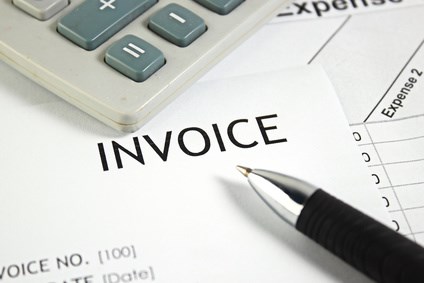Some businesses may request a payment in advance for goods or services. If you are VAT registered it is important to know when you can claim back VAT on an advance payment. This is generally determined by the tax point which is either the date of the invoice or the date money is received.
Here are six examples of different types of advance payments and how they are treated.
Regular scheduled payments
A company supplying regular monthly or quarterly services is able to provide a single invoice or schedule at the beginning of the period for up to 12 months ahead. The invoice or schedule will show the amount due with the breakdown of VAT. The VAT is due or claimed either when the payment is due or when the payment is made, whichever is earliest. VAT does not need to be paid, and cannot be claimed if you are the customer, for the whole period.
Deposits for goods
When a deposit for an item is made the supplier must declare the VAT due on that deposit on the date it is received or when the invoice is issued, whichever is the earlier. Sometimes a deposit will be paid months in advance of the goods being received but VAT is still payable by the supplier when the payment is received. Equally the customer will be able to claim back the VAT on the deposit they have paid if they receive a VAT invoice.
Of course if the supplier is not VAT registered then no VAT is payable or claimable. It is always worth checking this before claiming VAT back.
Deposit for hire of goods
When you hire a vehicle or a piece of machinery you are usually required to pay a deposit. As this is a refundable deposit no VAT is due so the customer can't claim back VAT and the supplier doesn't pay VAT. However if not all the deposit is refunded the amount which is not refunded is subject to VAT as it is income for the supplier and a cost to the supplier.
Non Returnable Deposit
If a supplier has taken a deposit from a customer and the order is subsequently cancelled, the suppliers terms may show that some or all of the deposit is not refundable. In this circumstance the amount of the deposit which is retained by the supplier must be declared as income and VAT paid on it. The customer should receive a VAT invoice for this too so that they can claim back the VAT.
Receiving instalments
If your customer wants to pay an invoice in instalments the tax point on the total sale is created when the goods or services are supplied, not when each payment is made.
Proforma Invoice or Request for Payment
Some businesses issue a proforma invoice or request for payment but are very lax at sending a VAT invoice once they have received payment. No business can claim back VAT on a deposit payment if they only have a proforma invoice or a payment request. Either of these documents should state that "This is not a VAT invoice". So to ensure you can claim back the VAT you must request a VAT invoice from them. Of course if they are not VAT registered there is no VAT to claim back but it will generally be VAT registered businesses issuing these types of documents.

